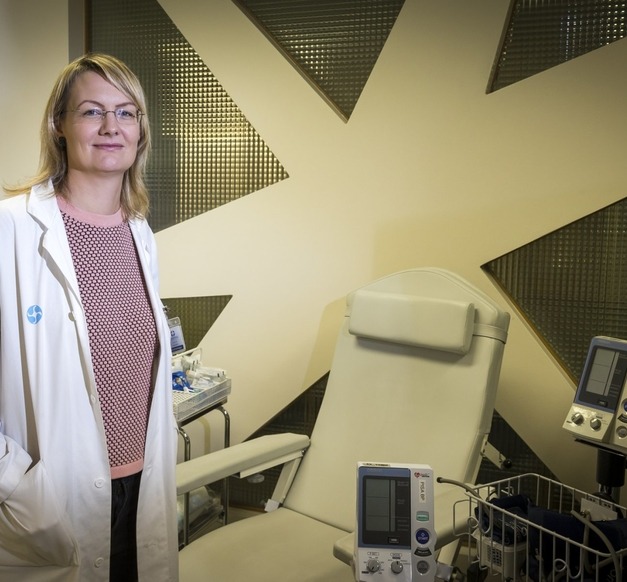Erna Sif Arnardóttir, postdoctoral researcher at the Faculty of Medicine
"It is known that those who report snoring and mild breathing disorders, but are not diagnosed with sleep apnea, suffer more from drowsiness and headaches than others," says Erna Sif Arnardóttir, postdoctoral researcher at the Faculty of Medicine. Her current work focuses on standardising procedures used to measure snoring and breathing difficulties in sleep. The goal is to research the importance of snoring and breathing difficulties in terms of the risk of cardiovascular diseases and other negative effects on health.
"Children who report that they snore a lot suffer the same negative effects with regards to behavioural problems and school performance as children with sleep apnea. This research could, therefore, lead to improved diagnosis of sleep-related breathing disorders and improve the wellbeing of many individuals in our society."
Erna Sif Arnardóttir
"This research could lead to a certain number of individuals who snore, but who do not have conventional sleep apnea, receiving treatment on the basis of clinical findings."

Erna Sif has over a decade's experience in sleep research, both in taking measurements of patients and conducting scientific research. She has long felt that the methodology used internationally to diagnose individuals with sleep-related breathing disorders could be improved.
"The severity of sleep-related breathing disorders is currently measured solely by counting the number of apneas per hour. This methodology only applies to those diagnosed with sleep apnea, but not to the large group of people who are in a grey area. These are individuals who snore a lot and have increased breathing difficulties, but a low number of apneas. These individuals potentially require treatment for such disorders. There are also others who are diagnosed with sleep apnea in accordance with conventional diagnosis methods but may have only minor breathing difficulties. We see this, for example, in elderly people. Possibly they do not require treatment for sleep apnea if the symptoms are minor."
Erna Sif says that this research could lead to a certain number of individuals who snore, but who do not have conventional sleep apnea, receiving treatment on the basis of clinical findings. This could possibly reduce the risk of these individuals suffering negative consequences from their sleep problems, such as daytime drowsiness, headaches and potential effects on the cardiovascular system – but this remains unclear as yet.


